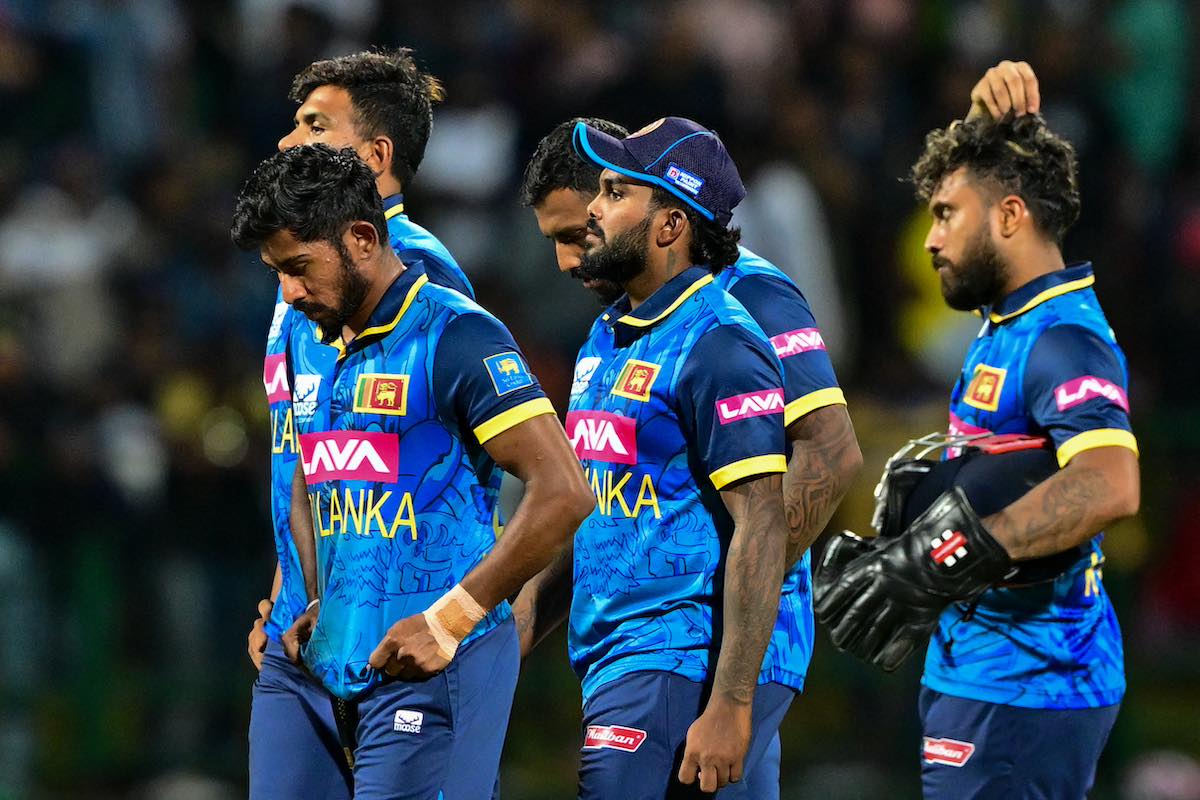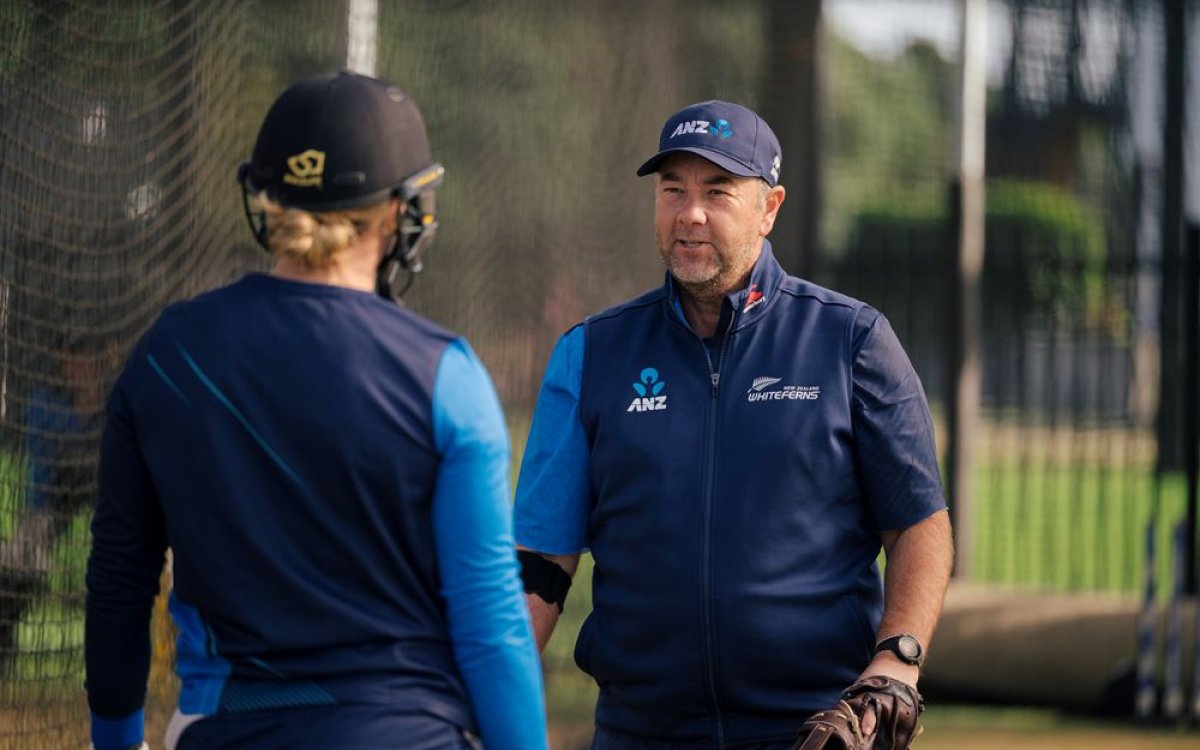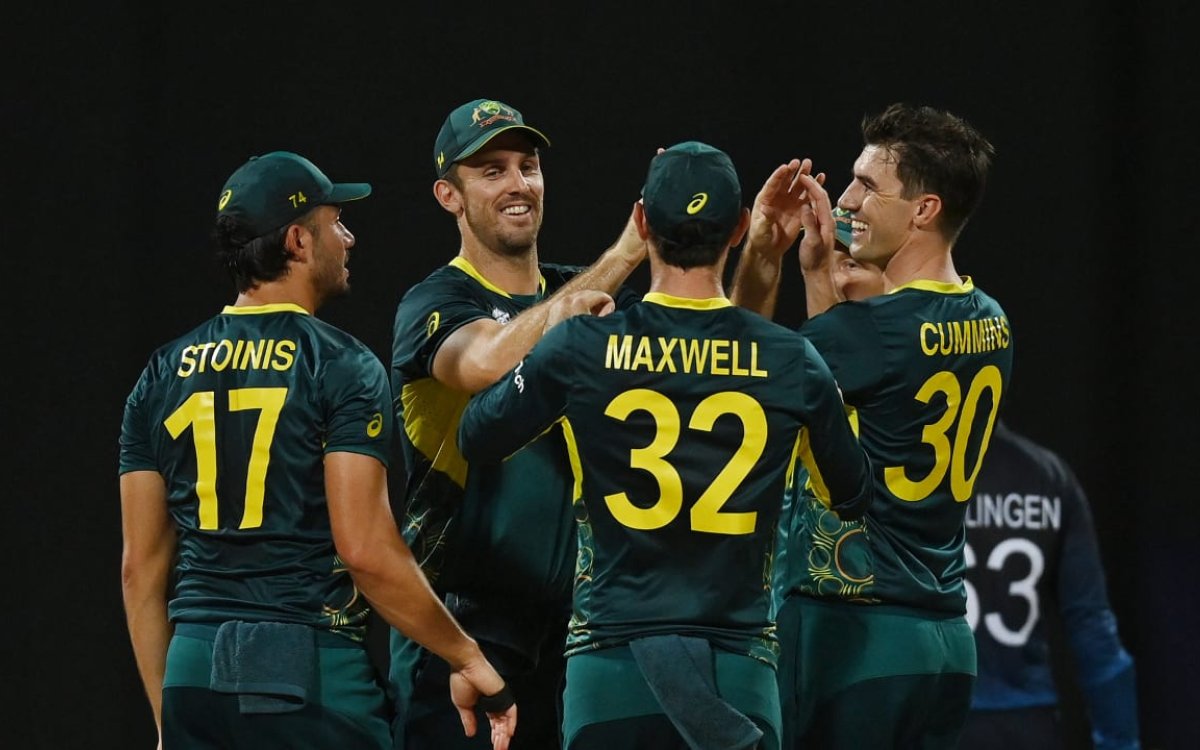A few days ago, the Indian T20 team and its followers had more reasons to celebrate. Their team trounced the Lankans 3-0 in a short series on Lankan soil itself. Sitting on the sidelines of each match, his face dismayed at the results was Sri Lankan interim coach Sanath Jayasuriya. For Indian cricket followers who are old enough to recall the phase between 1996 and 2001 when Jayasuriya butchered Indian bowlers across formats, the coach’s sad expression was perhaps as much of a joy as the results themselves. Especially as each of the three victories was accompanied by a surprise – the surprise of the Lankan batting folding up from positions of immense strength.
Take the first match. At one stage, chasing a stiff 214 to win, the islanders required 74 off 36 balls with 9 wickets in hand – undoubtedly a challenging task but the wickets in hand meant every batsman could give it a good try. At this point, the well-set Pathum Nissanka is bowled by Axar Patel, for a standout 79 off 48 balls. There wasn’t too much drama at this dismissal. After all, there were still 8 wickets in hand and there were plenty of players in the hut who could give the ball a good tonking. Except that no one did – SL collapsed from 140 for 1 to 170 all out. 6 batsmen failed to reach double figures. By the end, Riyan Parag had managed to make a mini-reputation for himself as a useful spinner. India will hope the reputation lasts!
In the second match, Sri Lanka, put into bat first, were 130 for 2 in 15 overs. It was the perfect setting for an assault that could have taken them to a total of 180 or thereabouts. Except that there was no assault. In the next five overs, the islanders manage to make a mere 31 runs more, losing 7 more wickets – with a rain interruption, India was set a target of a mere 78 to win, in 8 overs – they accomplished the chase with 9 balls to spare and closed the series. At this point it seemed obvious that the Lankans were not thinking too clearly. After reaching great positions, the rest of their players – number 5 and beyond – were batting in a daze. What transpired in the final match confirmed this.
With the series over as a contest, the third match was only academic. A few new faces show up in the Indian XI. One would imagine that with Pant, Axar, Hardik and Arshdeep sitting out, Lanka would have found it somewhat easier. For the longest time in this final contest, it did look as if that would be true. India were restricted to a mere 137 – a far cry from the 213 they managed in the first match. And SL reached 110 for the loss of just 1 wicket. With 28 needed off 28 balls and 9 wickets in hand, even the most hardened Indian supporter would have contemplated turning off his television and going to sleep.
But the persevering few who continued to watch were richly rewarded. SL imploded once more and this time they lost as many as four wickets in the last two overs to – of all people – part-timers Rinku Singh and Surya Kumar Yadav. Whatever their other skills, Rinku and Surya had never taken a wicket in an international level T20 contest prior to this. The Lankans had made heavy weather of what should have been an easy chase – instead, they made Rinku and Surya look like Warne and Muralidaran combined. And they handed over a done deal on a platter, confining themselves to the vagaries of a super over shootout. The super over was even worse, with just a solitary run scored off the bat and two wickets lost. India finished their ‘chase’ in one ball. No surprises that Jayasuriya looked dismayed watching what he had to.
‘Self belief’ is described a person's belief in their ability to complete tasks and to achieve their goals. Looking at this series, it is obvious that India had it in ample quantity while the Lankans were entirely bereft of it. If the islanders want to regain some of that quality, there is no better set of persons to speak to but some of the World Cup winning team members of 1996, one of whom was in their dugout. Sanath Jayasuriya was an average batsman for the first half of the 1990s, often the sixth batsman in a side where Aravinda de Silva, Arjuna Ranatunga and for India, even Roshan Mahanama, were considered more dangerous.
The SL triumph of the 1996 World Cup was not just a salute to cricketing ability, it was a victory of self belief – something that the team lacked for much of the 90s. Don’t forget, Ranatunga had been playing for Lanka since 1982, De Silva for a decade and several others such as Gurusinha, Mahanama, Tillakaratne, Kaluwitharana and others had been around for much of the 90s or more. Not once did they win anything of note, in either form of the game that existed back then.
From an Indian viewpoint, matches against Sri Lanka back in the early 90s were looked forward to. In the 1992 World Cup, Indian fans felt genuinely deprived when rain caused the game to be abandoned – it was a feeling that points had been stolen from us. Four years later, India so dreaded the Lankan batting that by the semi final, we put them into bat since our team management had no clue what total would be out of the reach of the explosive Lankan batting unit. Even that didn’t work!
What changed for that set up of Lankans? The tour of Australia in 1995-96 and the leadership of Ranatunga had much to do with it. While that difficult test series resulted in a 0-3 drubbing for the Lankans, the defeat and even more, the chucking allegations on their main bowler Muralidaran, welded the team together like nothing else could have. Their skipper had the moral courage to look an umpire (Darrell Hair, who had called Murali for chucking) in the eye and not back down. It gave them a dose of self-belief that they could take on the best. Come the 1996 World Cup, they did take on the best and won! Naysayers will of course say that the conditions favoured them – but those conditions favoured India and Pakistan too.
Today, as this Lankan team looks to pick itself up from the shock of three successive defeats – each of which was lost from a winning position – they could do little better than have a chat with the champions of that past team. Or if nothing else, perhaps the Sri Lankan men’s team should get a shade of coaching from their women counterparts – who comprehensively beat the Indian team to win the T20 Asia Cup, on the same day that the men lost the second match and with it, the series.



